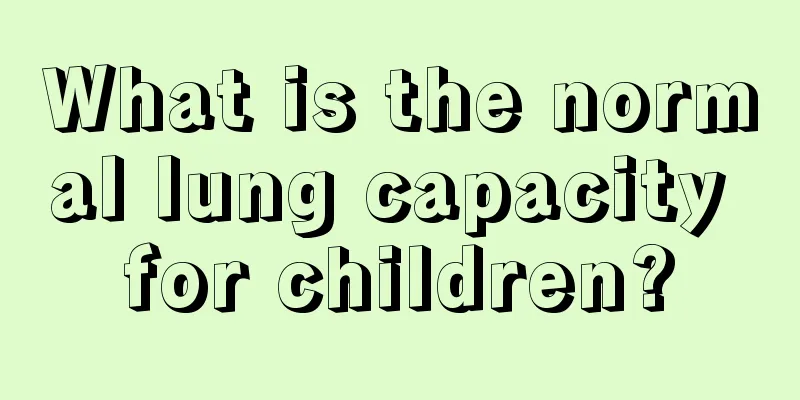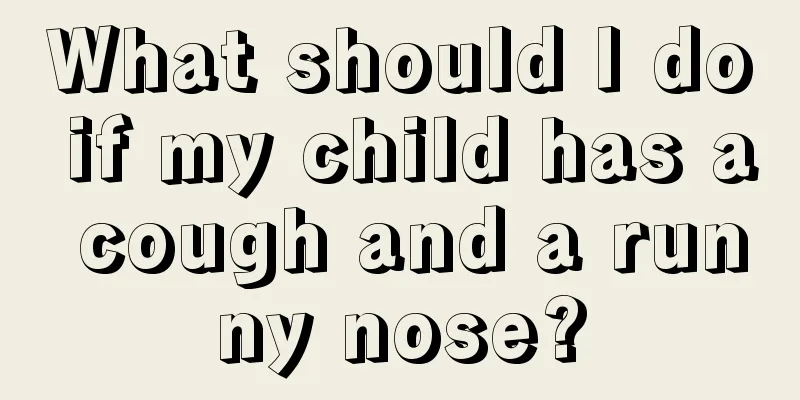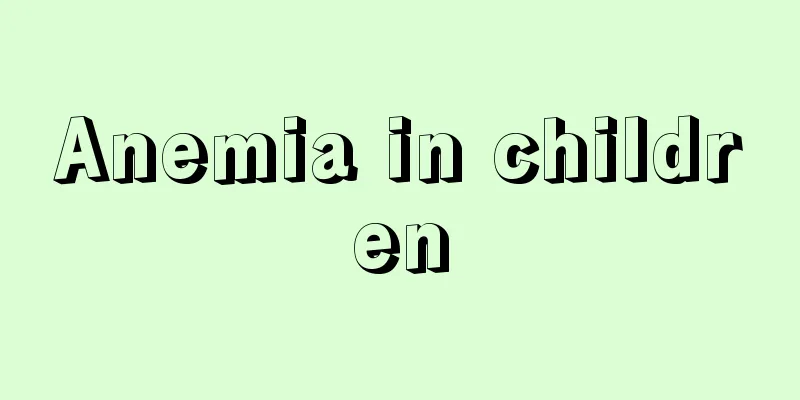Why does a three-year-old baby sweat when sleeping at night?

|
Every child is the hope of the family. Many parents are always extra attentive when taking care of their babies and pay special attention to every detail of the baby. Among them, baby sweating at night is a common phenomenon. It is also a problem that worries parents. They are afraid that the baby is caused by calcium deficiency, which will affect the baby's growth. Let's take a look at why three-year-old babies sweat at night. Why does a three-year-old baby sweat when sleeping at night? 1. Babies with physiological hyperhidrosis Sweating is a kind of nerve reflex in the body. Because babies are in the stage of growth and development, their physiological metabolism is vigorous and the regulatory function of the nervous system is not very sound, so they sweat a lot. This is medically called physiological hyperhidrosis. Babies with this kind of physiological hyperhidrosis will sweat more obviously in the following situations, such as in summer, when the baby wears too many or too tight clothes, when the baby is active, when eating hot food, or when the baby is nervous or scared. If your baby has no other abnormal symptoms, that is, it is physiological hyperhidrosis. Such babies sweat a lot, not because of physical weakness. Parents do not need to worry and no special medication is needed. Countermeasures: Parents need to take good care of babies who sweat a lot, including: (1) Babies should drink more water; (2) Cultivate the baby's ability to adapt to the environment in life, such as wearing loose clothes and not using too thick bedding; (3) Change your baby’s clothes frequently, bathe him/her more often, and ensure his/her skin is clean; (4) Pay attention to education and do not spoil the baby. This is not only beneficial to the baby's mental development, but also can accelerate the improvement of the baby's nervous system regulatory function. In addition, babies who sweat excessively for a long time will lose zinc in their sweat, so they need to consciously increase the intake of zinc-rich foods, such as eggs, meat, liver, beans and peanuts, to meet the zinc needs for their growth and development. If your baby shows symptoms such as anorexia, slow weight and height gain, you should see a doctor and use zinc-containing drugs under the doctor's guidance. Generally, zinc gluconate has fewer side effects and is easier for babies to accept. Note that calcium supplements will prevent the absorption of zinc in the intestines; many babies take various calcium supplements preventively, and zinc supplements should be avoided at the same time as calcium supplements. 2. Vitamin AD for babies with rickets and excessive sweating: prevention of rickets in infants and young children In addition to the baby's physiological hyperhidrosis, hyperhidrosis caused by rickets is also a common cause in infants and young children. Infants and young babies need 400~800IU of vitamin D every day. If they do not get enough sunlight and do not supplement vitamin D food in time, they are likely to suffer from vitamin D deficiency. In addition, babies grow and develop rapidly, so vitamin D deficiency will cause rickets. Babies with rickets will show symptoms of irritability, crying, and restless sleep; they will sweat a lot, especially on the head, but it has nothing to do with climate. In addition to excessive sweating, babies with rickets also have skeletal deformities, such as square skull, wide fontanelle, delayed closure; delayed teething, flared ribs, bracelets or anklets, etc. Babies with rickets and excessive sweating need to treat rickets to solve the problem of excessive sweating. Countermeasures: 1. Vitamin D and calcium treatment must be carried out under the guidance of a doctor. After the treatment is completed, measures to prevent rickets can be taken, such as adding foods rich in calcium and vitamin D to the baby, such as egg yolks, animal livers, dairy products, etc.; 2. Make sure your baby gets more sun exposure. Babies under 2 years old need to supplement 400 IU of vitamin D and about 600 mg of calcium every day (pharmacy has vitamin D preparations and calcium preparations specifically for babies) to meet the needs of rapid growth and development. 3. Other care requirements for babies with rickets and hyperhidrosis are the same as those for babies with physiological hyperhidrosis. 3. Babies with excessive sweating who need special attention. Lean meat and walnuts are good for babies with excessive sweating and zinc deficiency. Physiological hyperhidrosis and rickets are the most common hyperhidrosis in infants and young children, but there are some rare conditions, such as tuberculosis, chronic infection lesions, parasitic infections, anemia, hyperthyroidism, and even tumors. Hyperhidrosis is a concomitant manifestation of these diseases and parents should pay attention to it. In addition to hyperhidrosis, babies with diseases may also have low-grade fever, weight loss or emaciation, sallow complexion, rash and other manifestations. If parents find any of these symptoms in babies with hyperhidrosis, they should take their babies to see a doctor in time to avoid delaying the diagnosis and treatment of the disease. The above is an introduction to why a three-year-old baby sweats while sleeping at night. After understanding it, we know that there are many reasons why a three-year-old baby sweats while sleeping. When encountering this symptom, do not blindly supplement calcium for the baby. Be sure to understand the cause. In addition, try not to let the baby wear too many clothes at night. |
<<: Why does a six-month-old baby sweat while sleeping?
>>: What are the growth and development standards for children?
Recommend
Ways to increase children's immunity
We all know that children's physical resistan...
Reasons for a child to have a fever after taking a bath
Sometimes, if a child’s resistance is not so good...
What are the causes of indigestion in three-month-old babies?
The birth of a baby brings such a great surprise ...
What are the symptoms of food fever in children
Children's fever is related to diet. It has c...
What to do if a six-month-old baby has a fever of 38 degrees
Children at the age of 6 months often have a high...
What should I do if my child has knee pain?
When it comes to knee pain, the first thing we th...
What is the weight gain pattern of infants and young children?
The weight gain of infants and young children ref...
Why does bacterial pneumonia recur in children?
Bacterial pneumonia is relatively common in child...
What to do if the baby does not defecate for several days
For newborns, the digestive system determines whe...
Do children need to take medicine for chickenpox?
People will deal with diseases to a greater or le...
What can children eat to grow taller?
The growth and development of children has always...
What to do if your 7-year-old child has a stuffy nose
It is a very normal phenomenon for babies to have...
How can children improve their physical fitness?
I often hear mothers complain that their children...
What to do if your child has tonsil inflammation and fever
Although the role of tonsils in the human body is...
How should parents educate introverted children?
We all know that parents and living environment h...









